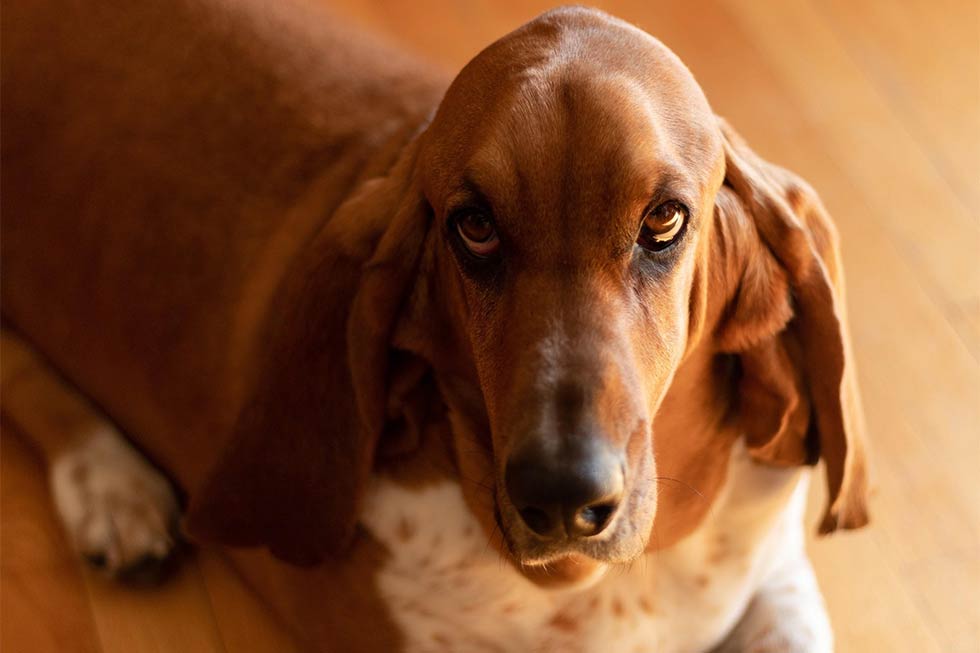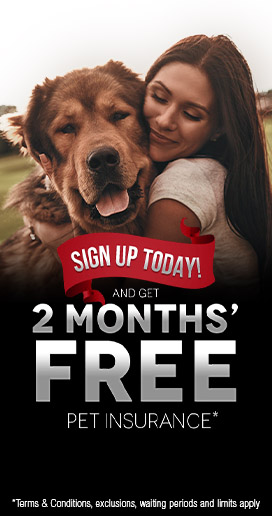
Pet Obesity Is A Growing Epidemic. Here's How You Can Help
Animal health experts are warning that treating our dogs and cats like humans are making them fat. This growing trend toward the humanization of pets could potentially be cutting their lives short.
Pet obesity is a growing epidemic. While chubby or ‘floofy’ animals may look cute, the extra weight these pets carry is putting their health and wellbeing at risk.
As the number of overweight pets increases, so too does obesity-related insurance claims. Pet-related claims for obesity-related illnesses have risen by 100% in the past five years, with pet owners claiming illnesses such as diabetes, glucose intolerances and tracheal collapse on insurance.
Pets’ eating habits
Many experts argue that the blame can be attributed to pet owners applying their own eating habits to their pets.
“Most pet owners think they can feed their pets whatever they eat themselves. What your pet needs nutritionally is very different”, says Dr. Lohith HD, a surgeon at Bangalore Pet Hospital.
Owners regularly fall into the trap of over-pampering and overfeeding their pets and underestimate how much they are actually feeding them on any given day.
Pets have completely different dietary needs to humans and feeding calorific human food and unnatural treats can lead to extra kilos. And just like their human owners, pets are increasingly living sedentary lifestyles which only adds to this obesity epidemic and associated problems.
Related: Pet Dementia & Diets
Overfeeding – an act of love that can prove harmful
Pets that are overweight are at risk of a number of serious illnesses including diabetes, heart disease, arthritis, joint disease, breathing difficulties and even some types of cancers.
Our pets are like our family, and it’s natural to want to spoil them with treats and human food. But over time, overfeeding our pets and falling for their sad puppy dog eyes can reduce their quality of life – especially if you overfeed or feed your puppy the wrong diet while they are still growing.
Some animal experts state that people tend to overfeed their pets because they aren’t aware of their nutritional requirements. Add the human habit of snacking for pleasure to a dog’s daily routine, and what may seem like a harmless gesture of affection can do long-term damage.
“Treats can be a way to bond with your pet and help with training,” says Sydney-based vet Dr. Conradi.
“But what many owners forget is that overall food intake needs to be taken into account and reduced accordingly.
“And feeding dogs or cats fatty high-calorie human food – like scraps from the dinner table – is never a good idea.”
Introducing healthier habits
Owners hold the key to keeping their pet’s weight under control. Recognizing that your pet is overweight is half the challenge, especially for seniors. The best way to start is by visiting your veterinarian, as they can provide guidance in determining the ideal body weight for your pet.
A successful weight loss program for your pet combines two main focuses. The first is exercise and the second is diet.
Walking is one of the easiest and most effective ways to exercise your dog. Aiming to keep your dog active and engaged in some sort of physical activity every day can start reversing obesity and its ill-effects. From walking around the block, playing catch in the park, or even taking your pet on holiday to explore new neighborhoods are all fun and beneficial ways to keep your pet engaged in exercise. If daily walks and mini getaways aren’t available, a simple game of catch or running around in the backyard can be effective.
Maintaining your pet’s weight also relies heavily on their diet and nutrition. Just like human beings, food and nutrition play an important role when it comes to losing weight.
Work with your veterinarian to identify how many calories you should be feeding your pet. Using quality pet food also makes a big difference, or making homemade food so you know exactly what’s going into your pet’s food dish. Make sure that you are reading the product label and that you follow the feeding guide. Like humans, treats also contribute to a dog’s daily calorie intake. If you’re feeding your pet treats throughout the day, then make sure that you adjust the portion of their meal at dinnertime accordingly.
Looking for ways to increase your pet’s daily activity levels and keeping an eye on pet nutrition and portion levels can help prevent your pet from becoming overweight, which will add more healthier years to their lives and improve their overall health and happiness.
Get the latest Pet Insider Tips & News
We offer award-winning* pet insurance policies to protect your furry friend’s health and wellbeing. Get a quote today and give your pets the care they deserve.
Archives
Categories
- Cat Care (65)
- Cats (2)
- Dog Care (129)
- Guides (29)
- Health and Nutrition (201)
- Lifestyle and Activities (221)
- Media Release (27)
- Pet Care (251)
- Rescue Dogs (1)

